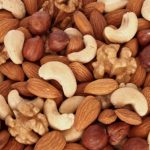 Peanut butter is perhaps the best known and most popular form of nut butter on the market. There have been warnings that peanut butter and a long list of other nut butters contain saturated fat and sodium; however, medical researchers insist it doesn’t mean that natural nut butters are bad for you.
Peanut butter is perhaps the best known and most popular form of nut butter on the market. There have been warnings that peanut butter and a long list of other nut butters contain saturated fat and sodium; however, medical researchers insist it doesn’t mean that natural nut butters are bad for you.
Fat and Protein Content
According to Harvard Medical School nut butters may have some saturated fat in them but it is the whole package of nutrients in the nut that you have to take into consideration. Some of the nut spreads are actually low in calories, low in carbohydrates and high in protein and vitamins.
Advertisement
Harvard doctors point out that some saturated fat is alright, but eating a lot of it can clog your arteries and lead to cardiovascular disease. To put it in perspective, an average two tablespoon serving of peanut butter has 3.3 grams of saturated fat and 12.3 grams of unsaturated fat. Peanuts are low in carbohydrates, have fibre and potassium in them, and contain some vitamins. If you don’t overindulge in peanut butter you won’t have to worry about your arteries or packing on too many calories.
In recent years the almond has received a lot of attention in the food industry. This is mainly because many nutritionists have labelled it a “super food”. They say it is packed with vitamins and minerals and is one of the healthiest nuts you can consume. Almond butter has calcium and magnesium in it and has proven to be helpful with muscle and nerve function. Some studies even suggest that almonds reduce the risk of heart disease.
On the other end of the spectrum, there is the lonely pecan. Not much has been written about pecan butter, but it has vitamins A, B and E, as well as folic acid, Phosphorus, potassium and zinc.
Cashews have become a popular nut and cashew butter is catching on. It is high in protein and iron. It tends to be really creamy but doesn’t have the high saturated fat that many dairy products do. It is interesting to note that people who normally enjoy carbohydrates tend to consume cashews.
Research shows that walnut butter is a good option if you want to get more omega 3’s into your diet.
As mentioned above, most of the fat in nuts is unsaturated. Known as monounsaturated and polyunsaturated; this fat seems to have the ability to reduce bad cholesterol when consumed in moderation. That is why nutritionists suggest nut butter in moderation.
Although most of the fat is considered heart healthy, eating certain kinds of nuts can add up to a lot of calories. For example, walnuts and pecans have fewer calories than peanuts and almonds. It is important therefore to check the calories in nut butters before you consume them.
Protein and the Vegetarian Diet
If you are a vegetarian or lack protein in your diet, nuts are a good option. Adding natural nut butters to your menu can break the monotony of your weekly diet. Peanut butter, walnut butter, almond butter and pistachio are high in protein.
Advertisement
Several U.S studies have indicated that people who include nut products in their diets are less likely to develop heart disease or type 2 diabetes than those who rarely eat nuts.
Peanut butter used to be the only option available outside of grabbing a handful of nuts to snack on; however, now the food industry has answered the call for more variety and consumers have access to all kinds of nut butters. They seem to be healthy food sources that can steer you away from heavy carbohydrates, while encouraging intake of healthy protein, vitamins and minerals at the same time.
Related Reading : Top 10 reasons to eat walnuts every day
